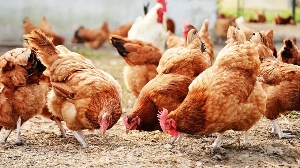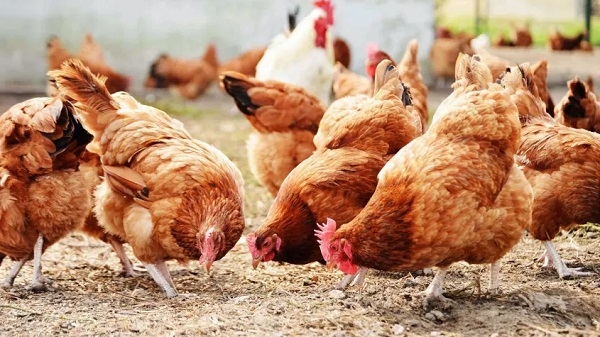 The government’s policy of (Nkoko Nkitinkiti) intends to give every constituency 10,000 birds
The government’s policy of (Nkoko Nkitinkiti) intends to give every constituency 10,000 birds
The Western Regional Poultry Farmers Association says distributing broilers to non-poultry farmers or inexperienced groups at the constituency level was tantamount to the failure of the programme.
The government’s policy of (Nkoko Nkitinkiti) intends to give every constituency 10,000 birds at an estimated cost of 200 million cedis, a significant commitment to the Poultry sector.
The group said, broilers required specialised care; feed regime, housing, vaccination and stress management, therefore without adequate training to beneficiaries it would result in high mortality and economic loss to the state.
Emmanuel Benya, the Regional Chairman of the Association, at a press conference at Takoradi said though the initiative was a bold one to reduce dependency on imported Poultry, critical implementation risks must be addressed.
He mentioned bird mortality, threats of outbreak of diseases and market disruption as a major challenge of poultry farming, and recommended Cockerell as a more sustainable and cost-effective alternative for the project, than broilers which were very fragile and had less resistance to infections.
“We strongly recommend Cockerell or Saso which are more resilient, require less intensive care or management and are better suited to the Ghanaian climate with lower risks options and are also in high demand,” the Chairman explained.
Benya said the ability to raise birds was not a task for the faint hearted; “members of the Association are therefore cardinal in the successful implementation of the policy…this could also save numerous birds from the mortality bracket.”
They were also of the view that the government must gave each identified Poultry farmer or commercial farmer specific number to rear as against giving all 10,000 birds to one farmer…this will save deaths associated with mobility after the four weeks period.
Benya said the policy had the power to become a transformative game changer for Ghana in revitalising local agriculture, achieving food security and strengthen the cedi but for implementation hiccups.
The Association suggested a biosecurity protocol, comprehensive training, government supported veterinary services and monitoring framework in partnership with existing farmer Association.
Benya therefore called on the Ministry of Food and Agriculture and other relevant state agencies to help the government with the right information and management abilities to ensure that the programme became a great success to the teeming sector players.
Some of the poultry farmers encouraged the government to depoliticise the programme to achieve the utmost result.
